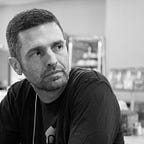Island Time
We’re all living on Island Time now.
Most of us crave the warm, seductive charms of vacation in a tropical paradise. Arriving in a beautiful, sunny beachfront destination. Time evaporates. Taxis meander, meals last forever, and the locals are in no hurry to get anything done. Island Time.
Early this year, with the onset of the COVID pandemic, we all suddenly found ourselves marooned in our homes. We might as well have been separated from each other by miles of ocean. Everything we needed became a lot harder, just like living on a small island where all of your essentials arrive by boat. Forced Island Time.
I’ve literally been living on an island since early March. Orcas Island is located north of Seattle, about 20 miles from the Canadian border, amidst the San Juan Islands. There are no bridges to the mainland, although Washington State operates seven hour-long sailings to Orcas Island every day using massive 120-car ferryboats. More importantly, I have a high speed (and mostly reliable) internet connection here so that I can work full time via Zoom.
When you live on a remote island, you start to think about time differently. I used to travel a lot, and rarely woke up in the same place for more than seven days in a row. Now I’ve woken up in the same exact place for over 200 days straight. By early April, I started to notice exactly where the sun came up, and how it seemed to move along the ridge line outside my bedroom window each day. I could feel the days starting a little bit earlier. I started to notice the phases of the moon, by when the moon would brightly shine into my bedroom late at night. Now I’m starting to feel time constrict as the sun sets sooner and faster, and the rains return.
Before the pandemic, I hoped I would be able to spend four weeks a year here on Orcas Island, while spending the rest of my time at home in Seattle or on the road. Remote work, although possible, seemed to be subtly frowned upon by everyone in the tech ecosystem. It all changed overnight, and now, here I am full time on an island.
I used to mark time on my calendar with flights, breakfast meetings, phone calls, partner meetings, dinners, company visits, family holidays, and traveling to the colleges my kids attend. Now it’s video calls and email, and evening entertainment delivered via a little black puck under my TV. Or workouts on my Tonal and solitary runs along quiet gravel roads. Punctuated by deliveries from Amazon, a trip to the local grocery store, or firing up my chainsaw to cut away a 70-foot Douglas Fir that fell across my driveway in a windstorm.
Everything now boils down to bandwidth and time zones. Distance is set by the number of time zones to the other people on a Zoom call. Suddenly New Zealand is as close as the East Coast. The structure of my day is set by where are the people I’ll be talking to via Zoom. Boston? Early start. Europe? Even earlier. Today, no one blinks if I mention that I’m living on a tiny island near Canada. What is a weekend now? It’s no longer a series of social and family commitments — it’s just when email slows down a bit.
What happens after the pandemic? I personally fall into the school of thought that we will put COVID completely behind us — that a vaccine will work, and that people will want to travel again, in high volumes, for the simple reason that in-person human interaction feeds our souls. What will be different is business travel. It will still be important. But a lot less will be required. In fact, the most successful entrepreneurs and executives will find tremendous leverage in using Zoom together with the right proportion of in-person meetings. I suspect that means we’ll see the same number of conferences and business dinners as before — just less meetings in conference rooms.
Will I stay on Orcas Island full-time after the pandemic? Honestly, I don’t know. But what I do know for sure is that I am going to spend a lot more time out here than I had originally planned.
